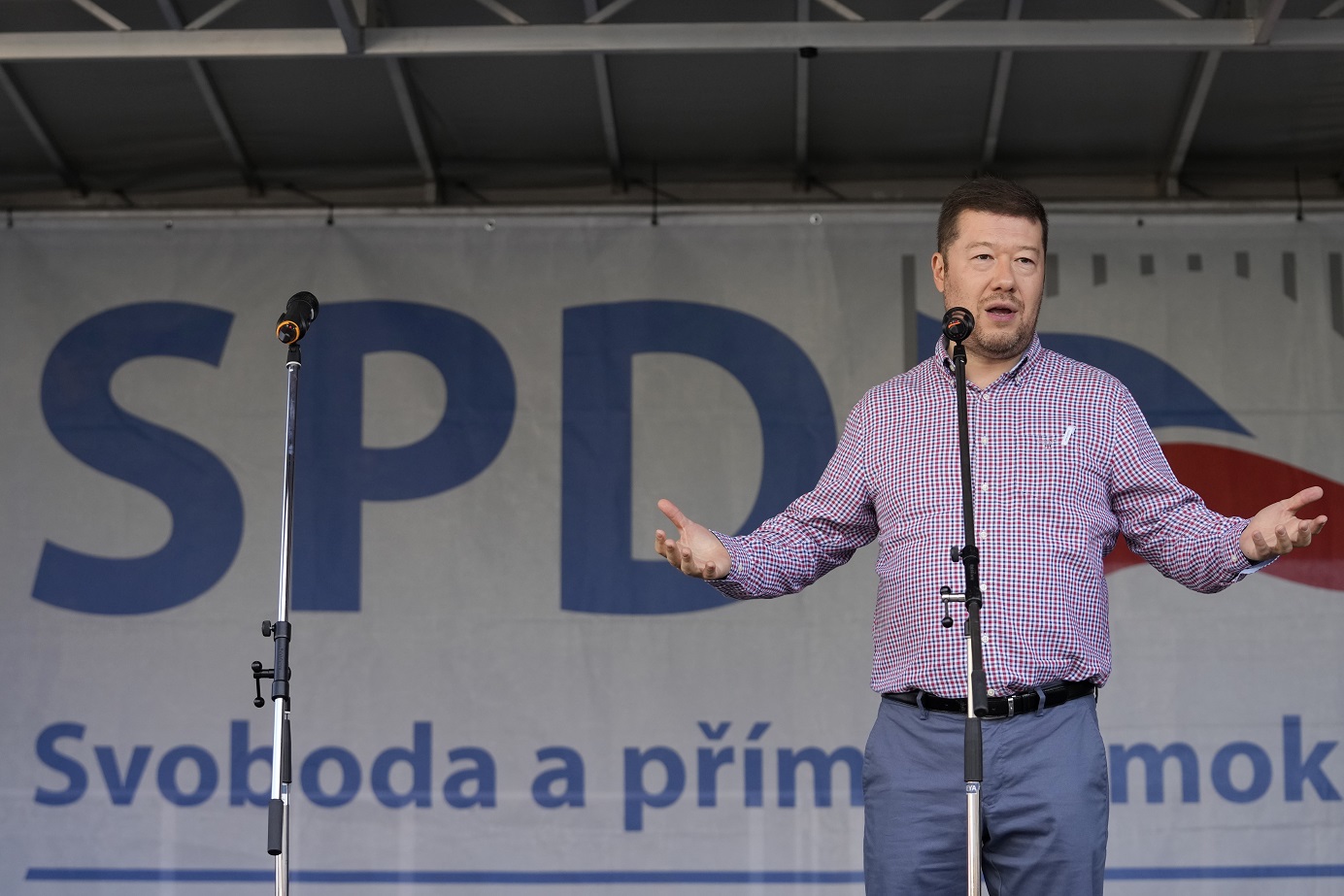In this year’s municipal elections in the Czech Republic held over the weekend, Czechs backed populist and right-wing parties as the center-right government saw voters turn away due to a souring economy and growing cost-of-living crisis.
The populist ANO party, which is led by former Prime Minister Andrej Babiš, came in first in eight of 13 regional capitals, but it fell short of gaining control of the two largest cities, Prague and Brno. Babiš, considered a close ally of Hungarian Prime Minister VIktor Orbán, narrowly lost Czech national elections in 2021, but the latest results indicate that his party is clawing back voters.
In addition, the right-wing Freedom and Direct Democracy (SPD) party led by Tomio Okamura made substantial gains in larger cities in the country, with the party’s aggressive stance against Russian sanctions, which many Czechs blame for soaring energy inflation, resonating with voters. Okamura’s party tripled its number of municipal representatives from 161 to 492, and secured its first-ever representatives in Prague. In a sign that the party is growing in popularity, recent polling also shows the SPD is currently the second most popular party in Czechia.
[pp id=16644]
Czechs elections are routinely described — even by Czechs — as complex and complicated. When it comes to municipal elections, most political analysts are looking at the results of the biggest cities in the country, where ANO and SPD outperformed. However, the country’s oldest parties, such as the Christian and Democratic Union–Czechoslovak People’s Party (KDU-ČSL) and the Civic Democratic Party (ODS) are the most entrenched in smaller towns and rural areas, where they have campaign offices and local representatives who have long served in their positions. This may be one factor why despite losing many of the cities, KDU-ČSL still won the most representatives from any party, just like four years ago, although by a smaller share.
The second-place finisher was the Civic Democratic Party (ODS), and the third was the Mayors and Independents (STAN). Compared to the results in 2018, the Czech Social Democratic Party (ČSSD), Communist Party of Bohemia and Moravia (KSČM), and Mayors and Independents (STAN) saw a significant drop in their number of representative seats. The other parties of the government coalition also lost seats, while the opposition movements Freedom and Direct Democracy (SPD) and ANO improved.
Babiš also celebrated his party’s results in Prague where ANO got the second most votes.
“It is a success because we lost the general election in 2021 mainly in Prague where we had some 14 percent,” said Babiš while pointing to the 19.34 percent of the vote his party scored in the city.
However, as usual, independent candidates and their various local associations won the municipal elections overall. According to data, they won 3,367 more representative seats than four years ago.
A third of Czech Senate seats were also up for grabs, but the results of those elections are less clear. Of the 27 senate seats up for grabs, only three were decided in the first round. Next weekend, the rest of these seats will be decided. However, ANO already won one extra seat, and the party is headed to the second round in 17 districts. Given that only a third of senate seats are up for grabs, it means that there is no way the current ruling coalition is under threat of losing power following next weekend’s election results.
According to the final results published by the election website on Sunday, 46.07 percent of voters participated in the municipal elections. That is roughly one percentage point less than in 2018.
The most significant drop affected the left
ČSSD lost almost three-fifths of its representatives. KSČM fared even worse, losing almost 70 percent of its representative mandates. STAN recorded a drop of 747 seats in councils, ODS lost 306, Pirates lost 84, and TOP 09 lost 56.
The SPD movement has improved by 331 mandates since the last election, and the ANO movement won 64 more representatives.
The ANO movement won in most major cities. Just like four years ago, they won in 17 out of 27 statutory cities, including eight out of 13 regional capitals. In the last municipal elections, ANO was in first place in 11 regional capitals.
KDU-ČSL won first place among the parties even though they lost 393 seats in the councils. They won 3,252 of them this year.
According to data from the Czech Statistical Office, 195,214 candidates sought 61,796 representative mandates. The average age of elected representatives is 47.6 years, while the oldest representative is 88 years old. Eleven representatives who were 18 years old won a seat. Among the elected representatives, 71 percent are men, and 29 percent are women.





